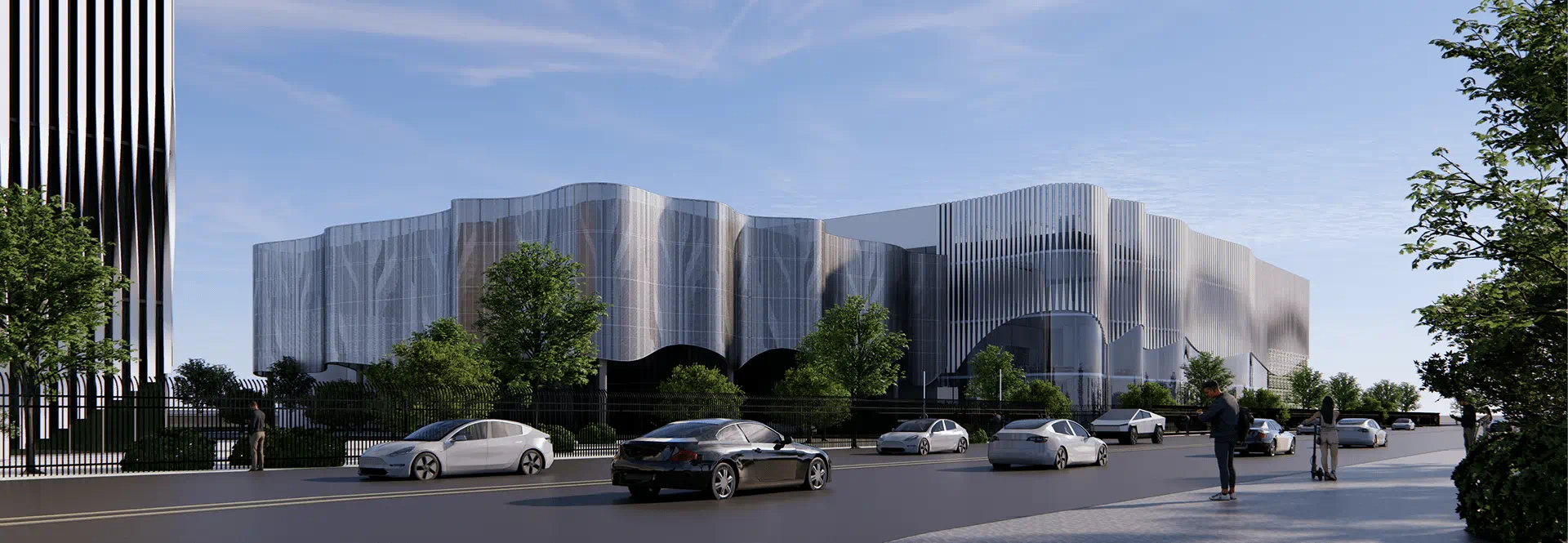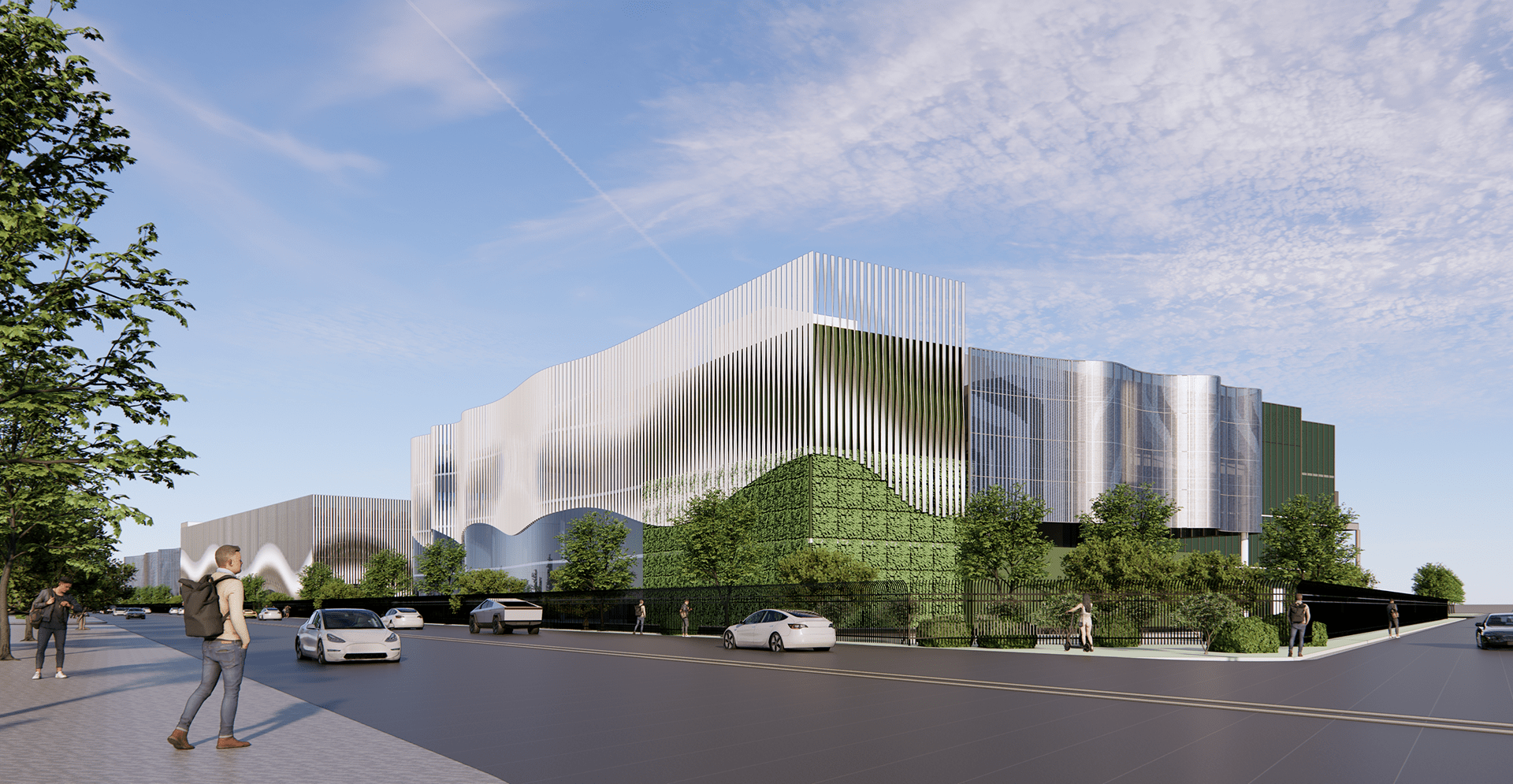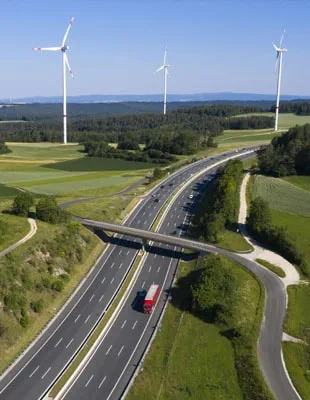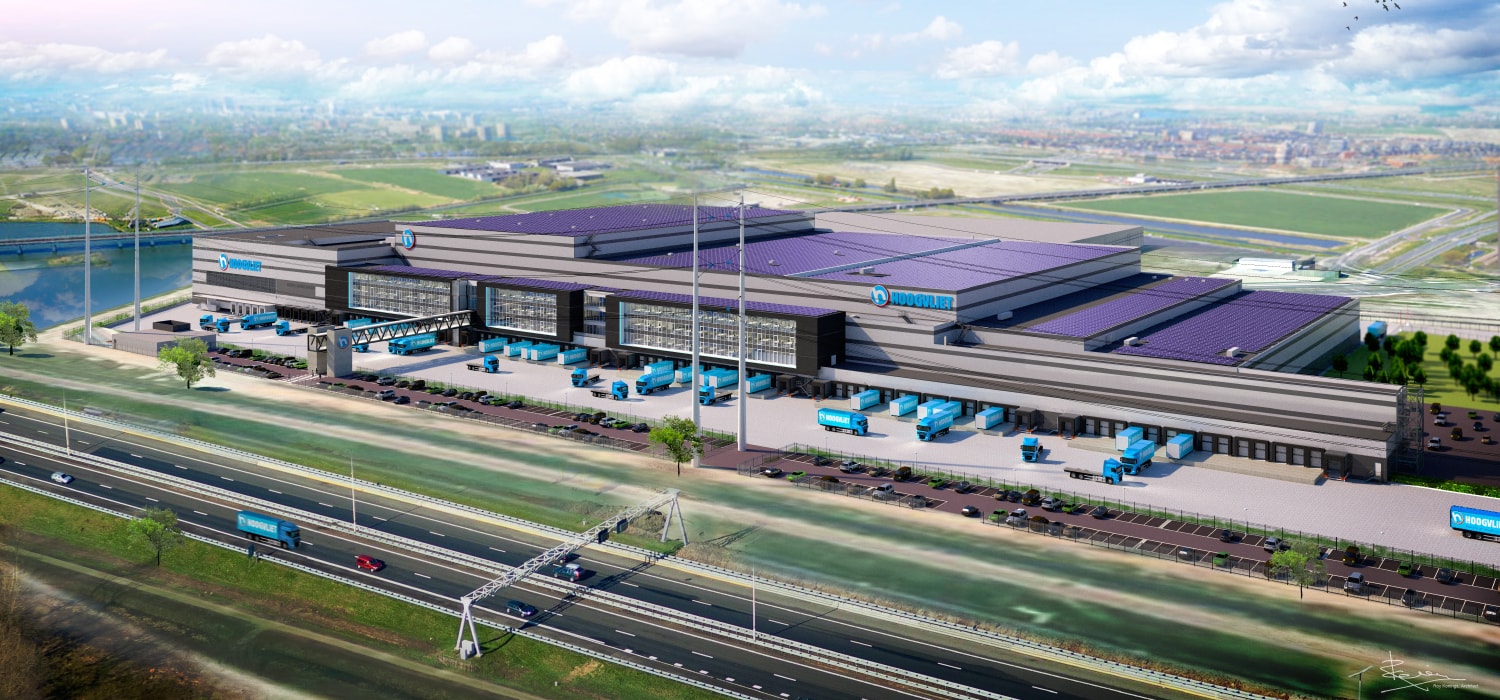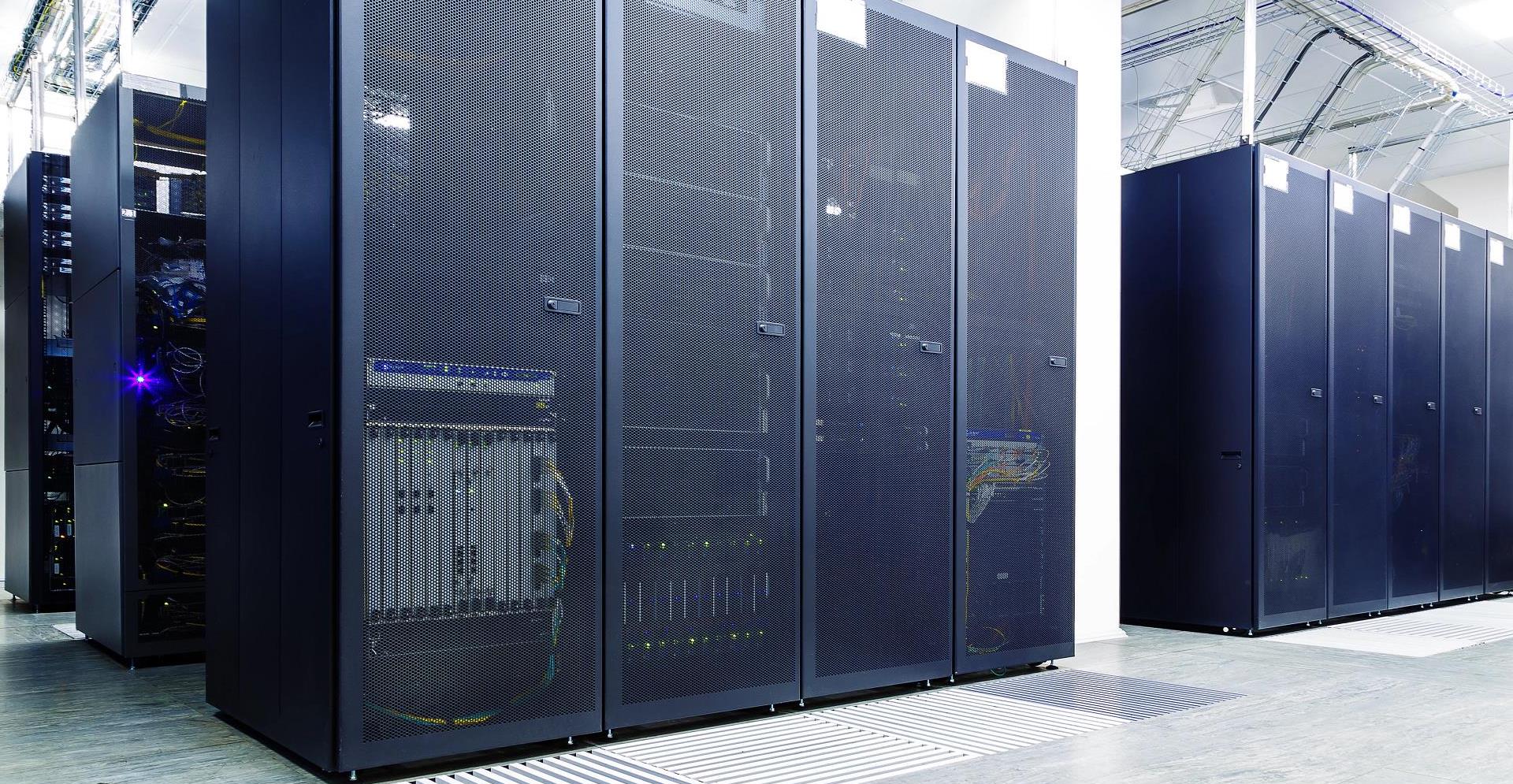Table of Contents
The challenge
Finding an alternative way to power a large data center campus.
426,983 square-foot
cutting-edge data center
Data centers, physical spaces where data is processed, managed, stored, and disseminated amongst its users, have been criticized in recent years for their perceived hunger for energy, thirst for water and potentially sizeable carbon footprint. As a result, it is harder for the technology industry to locate suitable sites. Moratoriums around the globe have stalled the development of these facilities and put in place limits on power supplies and utilities that hold up the few that are given the green light in years of regulatory approval. So, when Terra Ventures in San Jose, California, decided to use an acquired site to house a data center, rather than a commercial retail complex, they knew it needed to appeal to the community as much as it did potential tenants.
The solution
A self-sufficient microgrid and innovative design to minimize emissions.
70%
reduction in energy for cooling
Terra Ventures came to Arcadis for a data center, what it got was a prototype design for one of the world’s most sustainable data centers that brings this typology closer to net-zero than ever before.
The physical design for Phase 1 of the campus will consist of two separate structures. The first is a three-story, 295,080 square-foot data center with an attached power structure. The second is a three-story, 131,903 square-foot standalone power structure. Phase 2 will include a greenhouse and retail center.
The power design revolves around establishing a self-sufficient microgrid that operates independently of the local utility. Substantial reductions in C02 emissions are achieved by eliminating all backup generators, and utilizing waste fuel cell exhaust heat to generate chilled water via absorption chillers. This supplements data center cooling requirements by as much as 70%.
-
Read more
The fuel cells for this site are fueled by natural gas and will be used as the campus’ primary source of power. The data center’s ‘availability’ – otherwise known as its reliability – is typically measured in ‘nines’, with higher numbers indicating better reliability. For this design, the center has been calculated to have an availability of four-nines and a five (99.995%), equating to approximately 2.36 minutes of downtime on average per-year – an availability which is considered very high, or very reliable by industry standards.
As an added benefit, unused redundant power will be pumped back into the utility power grid, so instead of pulling from the grid, the opposite will be true and an additional potential revenue stream will be created.
To further reduce emissions, the data center will incorporate a ‘greenhouse’ that will benefit from the two byproducts of natural gas fueled cells, CO2 and H2O. These byproducts will be used to grow fresh fruit and vegetables that can be harvested and sold locally from an onsite community retail store. By increasing CO2 concentrations from 400 parts per million (ambient) to 1,000 parts per million, we will increase the grow yields within the greenhouse by as much as 61%.
By working with Arcadis, Terra Ventures can advance upon its ambition to conserve resources and move closer to achieving its net zero goals.

The impact
A trailblazing design taking significant steps on the journey towards a net-zero facility
Three-story
greenhouse designed to sequester carbon
Whilst hydrogen fuel cells remain the 'greenest' solution, this use of natural gas-fueled fuel cells presents a more readily available and viable alternative that takes a huge leap towards a truly net-zero facility.
Compared to typical utility rates, the reduced cost per kW hour available through a Power Purchase Agreement (PPA) with the fuel cell manufacturer has the potential to create significant financial savings over the lifespan of the project.
Not done reading?
This also might be interesting for you
- Related Projects
- Related Insights
- Related Blogs


